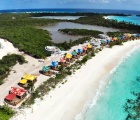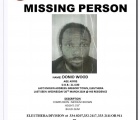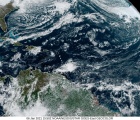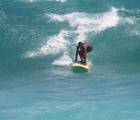A letter addressed to all residents within Central Eleuthera has been circulated inviting the public to a Town Hall Meeting being held on Tuesday evening at 6:30pm on March 10th, 2020 at St. Patrick’s Parish Hall in Governor’s Harbour – to discuss the Covid-19/Novel Corona Virus threat.
The meeting is being hosted by the Central Eleuthera Administrative Office, in partnership with Dr. Allen Cho, and Dr. Arlington Lightbourne. Important information in the prevention and care of Covid-19 is expected to be shared.
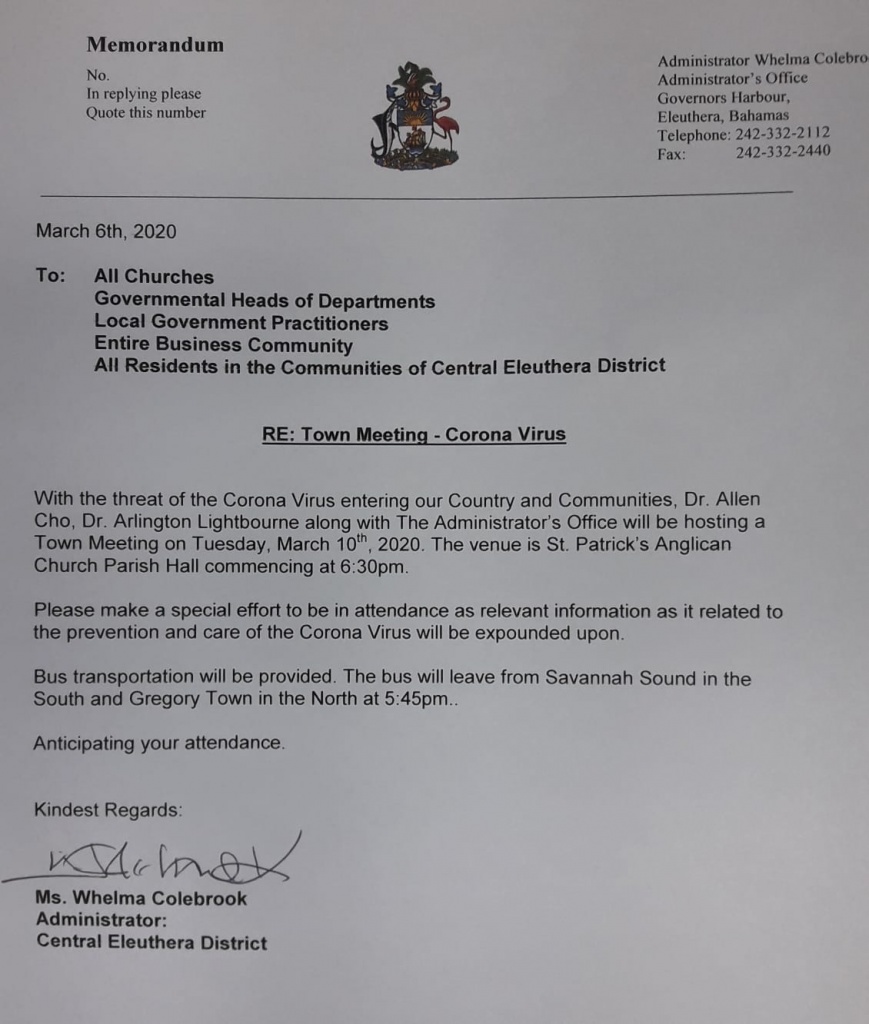
Please see below a set of Frequently Asked Questions and Answers on COVID-19, released by the Bahamas Ministry of Health:
What is a Coronavirus?
Coronaviruses are a large family of viruses found in both animals and humans. Some infect people and are known to cause illnesses ranging from the common cold to more severe diseases such as Middle East Respiratory Syndrome (MERS) and Severe Acute Respiratory Syndrome (SARS).
What is a “novel” coronavirus?
A novel coronavirus (CoV) is a new strain of coronavirus that has not been previously identified in humans. The new, or “novel” coronavirus, first called 2019-nCoV, now called COVID-19, had not been previously detected before the outbreak was reported in Wuhan, China in December 2019.
How does the virus spread?
The new coronavirus is a respiratory virus, which spreads primarily through contact with an infected person through respiratory droplets. Droplets can be generated when a person coughs or sneezes, or through droplets of saliva or discharge from the nose. It is important that everyone practice good respiratory hygiene. For example, sneeze or cough into a flexed elbow, or use a tissue and discard it immediately into a closed bin. It is also very important for people to wash their hands regularly with soap and water or use an alcohol-based hand sanitizer.
How long is the incubation period?
The incubation period is the time between infection and the onset of clinical symptoms of disease. Current estimates of the incubation period range from 1-12.5 days with median estimates of 5-6 days. These estimates will be refined as more data becomes available. Based on information from other coronavirus diseases, such as MERS and SARS, the incubation period of COVID-19 could be up to 14 days.
How dangerous is it?
As with other respiratory illnesses, infection with COVID-19 can cause mild symptoms including a runny nose, sore throat, cough and fever. It can be more severe for some persons and lead to breathing difficulties, pneumonia or sometimes death. Older people and people with pre-existing medical conditions (such as diabetes and heart disease) appear to be more vulnerable to becoming severely ill with the virus.
Are there any specific medicines to prevent or treat COVID-19?
To date, there are no specific medicines recommended to prevent or treat the novel coronavirus. However, those infected with COVID-19 should receive appropriate care to relieve and treat symptoms, and those with severe illness should receive optimized supportive care.
To protect yourself from getting infected with the new coronavirus, maintain basic hand and respiratory hygiene, safe food practices and avoid close contact when possible with anyone showing symptoms of respiratory illness such as coughing and sneezing.
Are antibiotics effective in preventing and treating the COVID-19?
No, antibiotics do not work against viruses, they only work on bacterial infections. Therefore, antibiotics should not be used as a means of prevention or treatment for this novel coronavirus.
What can I do to protect myself?
Stay aware of the latest information on the outbreak, and take care of your health by doing the following:
• Wash your hands frequently with soap and water or use an alcohol-based hand sanitizer. This eliminates the virus if it is on your hands.
• When coughing and sneezing, cover your mouth and nose with a flexed elbow or tissue. Discard the tissue immediately into a closed bin and clean your hands with alcohol-based hand sanitizer or soap and water.
• Maintain distance between yourself and other people, particularly those who are coughing, sneezing or have a fever. If you are too close you may come in contact with droplets that contain the virus.
• Avoid touching your eyes, nose and mouth. You can transfer the virus from surfaces to yourself through unclean hands.
• Disinfect frequently touched surfaces and objects.
• If you have a fever, cough and difficulty breathing, call your health care provider. Tell your health care provider if you have travelled to China, a country affected with COVID-19 or have been in close contact with someone who has travelled from China or an affected country and has respiratory symptoms.
• If you have mild respiratory symptoms and no travel history to China or a country affected with COVID-19, carefully practice basic respiratory and hand hygiene and stay home until you are recovered, if possible.
Should I wear a mask to protect myself?
Wearing a medical mask can help limit the spread of some respiratory diseases. However, using a mask alone is not guaranteed to stop infections and should be combined with other prevention measures including hand and respiratory hygiene and avoiding close contact with infected people. If a mask is used proper mask etiquette should be followed.
Who can catch this virus?
People living or travelling in an area where the novel Coronavirus is present may be at risk of infection. At present, COVID-19 is circulating in China where the vast majority of people infected have been reported.
Health workers caring for persons who are sick with COVID-19 are at higher risk and must protect themselves with appropriate infection prevention and control procedures. World Health Organization (WHO) is continuously monitoring the epidemiology of this outbreak to better understand where the virus is circulating and how people can protect themselves from infection.
Is the novel coronavirus in The Bahamas?
No. Currently, there are no reported, suspected or confirmed cases of COVID-19 in The Bahamas.
Are ports of entry to The Bahamas protected?
Surveillance at Bahamian ports of entry remains alert prepared and ready to respond.
If cases of COVID-19 are confirmed in The Bahamas, is the country prepared?
Yes. The Ministry of Health has developed and distributed the Novel Coronavirus Preparedness and Response Plan to healthcare facilities and stakeholders. Meetings to discuss the plan with multiple agencies are ongoing. Personal Protective Equipment and laboratory testing is available, quarantine/isolation sites are continually being identified. The Ministry of Health will keep the public updated.
Is it safe to travel to China or other countries where COVID-19 cases have occurred?
The Government of the Bahamas advises the public that non-essential travel to areas affected by COVID-19 is strongly discouraged. Persons who must travel to affected areas should expect to be routinely screened and tested and if necessary quarantined for up to fourteen days. When traveling in general Bahamians are advised to practice basic personal hygiene and take precautions to minimize exposure to this virus. Stay up to date with travel advisories. The situation is evolving.
Where can I get more information on COVID-19?
For more information call:
Surveillance Unit at Ministry of Health – 502-4790 or 502-4776, M – F 9am – 5pm
Health Education Division – 322-1025
In Grand Bahama call 350-6700 Ext. 2356
On the Family Islands – call the District Medical Officer or Nurse in Charge Community Clinic
You can also visit these sites:
www.bahamas.gov.bs/health or The Bahamas Ministry of Health Facebook page
https://www.cdc.gov/coronavirus/2019-ncov/index.html
https://www.who.int/emergencies/diseases/novel-coronavirus-2019
Johns Hopkins School of Public Health Chinese Coronavirus Real-Time dashboard – https://gisanddata.maps.arcgis.com/apps/opsdashboard/index.html#/bda7594740fd40299423467b48e9ecf6


